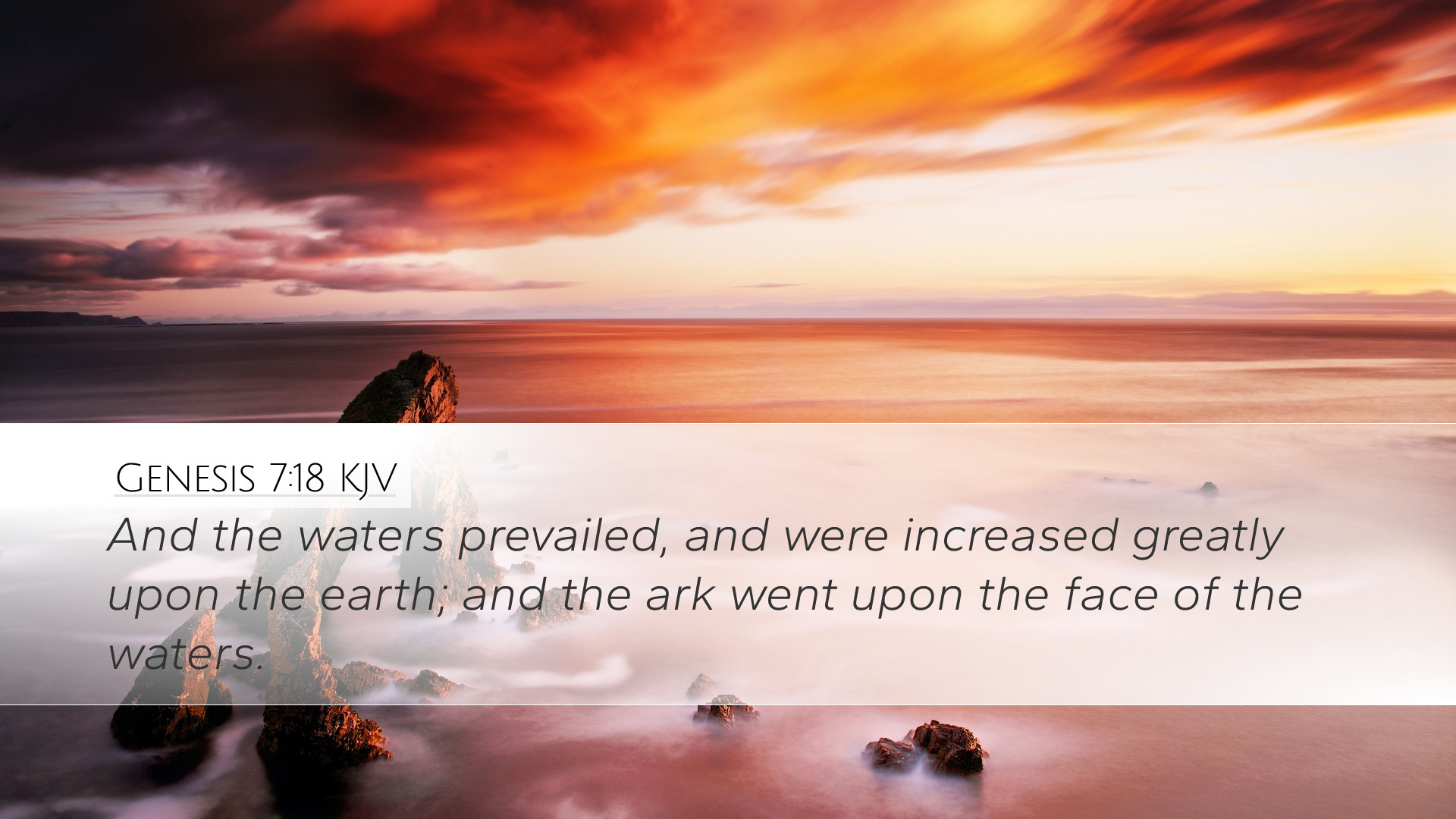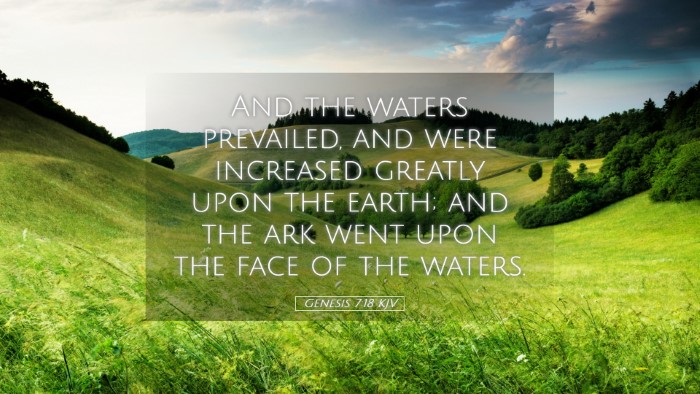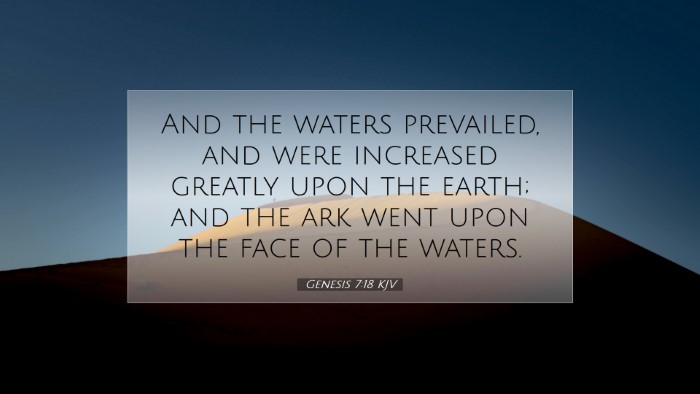Commentary on Genesis 7:18
Genesis 7:18 reads: "And the waters prevailed, and were increased greatly upon the earth; and the ark went upon the face of the waters." This verse marks a significant moment in the narrative of the Flood, encapsulating both the power of divine judgment and the preservation of Noah's family.
Contextual Overview
To understand the implications of this verse, we must consider its place within the broader context of Genesis 6-9. These chapters depict God's wrath against human wickedness and His covenantal promise to Noah and his descendants. The Flood serves as a divine reset, a necessary judgment to cleanse the earth.
Insights from Matthew Henry
Matthew Henry emphasizes the overwhelming nature of the Flood. He notes that the waters "prevailed," indicating not only a physical dominance over the land but also a spiritual significance—God's judgment is absolute. The phrase "increased greatly" highlights the extent of the Flood’s reach, covering even the highest mountains.
Henry astutely points out that while the Flood brings destruction, it also serves a redemptive purpose for Noah and his family. The ark, which Noah faithfully built at God's command, symbolizes salvation amidst judgment. The ark's floating upon the waters serves as a testament to God's providence; while destruction reigns, the faithful are safeguarded.
Insights from Albert Barnes
Albert Barnes elucidates the mechanics of the Flood, noting that the waters "prevailed" indicates an unstoppable force. The narrative illustrates that human attempts to thwart God's plan are futile. Barnes argues that the movement of the ark "upon the face of the waters" is a depiction of divine guidance; though the world is in chaos, God's presence guides the faithful.
Barnes further remarks on the implications of the ark's journey. As it floated above the intense judgment raining down, the ark became both a vessel of hope and a symbol of divine mercy. The water's rise is a representation of God’s sovereign control over nature, highlighting both His power and the comfort found in obedience to His will.
Insights from Adam Clarke
Adam Clarke provides a detailed examination of the physical and spiritual significance of the Flood. He stresses that the Flood was not merely a localized event, but a global phenomenon intended to enact God’s judgment on sin. Clarke suggests that the phrase "the ark went upon the face of the waters" implies a divine guarantee of delivery, underlining God’s trustworthiness.
Clarke's insights also point to the anticipation felt by Noah and his family during the Flood. While the earth was relentlessly submerged, their faith in God's promise buoyed them amidst uncertainty. He highlights how this narrative serves as a precursor to later biblical themes, where trials often precede divine deliverance.
Theological Implications
This verse raises profound theological reflections. It demonstrates that God's judgment is comprehensive, affecting all creation in response to human sin. Yet, it also showcases the duality of judgment and mercy. As waters covered the earth, they also set apart Noah’s family as a remnant—illustrating the principle of preservation amidst destruction.
Application for Today
For pastors, students, theologians, and Bible scholars, Genesis 7:18 offers a fertile ground for reflection. It encourages the faithful to trust in God's guidance amid life's tumultuous waters. The journey of the ark emphasizes that while circumstances may seem overwhelming, God's providence shields and directs those who remain steadfast in faith.
Understanding the nature of God's judgment alongside His mercy calls for introspection on the state of our own hearts and communities. As we see the waters of sin rise around us, we are reminded of our call to build our own arks of righteousness: lives that stand in stark contrast to the flood of iniquity present in the world today.
Conclusion
In summary, Genesis 7:18 serves as a powerful reminder of the importance of faith, obedience, and divine protection. The insights from Matthew Henry, Albert Barnes, and Adam Clarke serve not only to enhance our understanding of the text but also to inspire personal and communal reflection on God’s character and our response to His sovereign plans.


